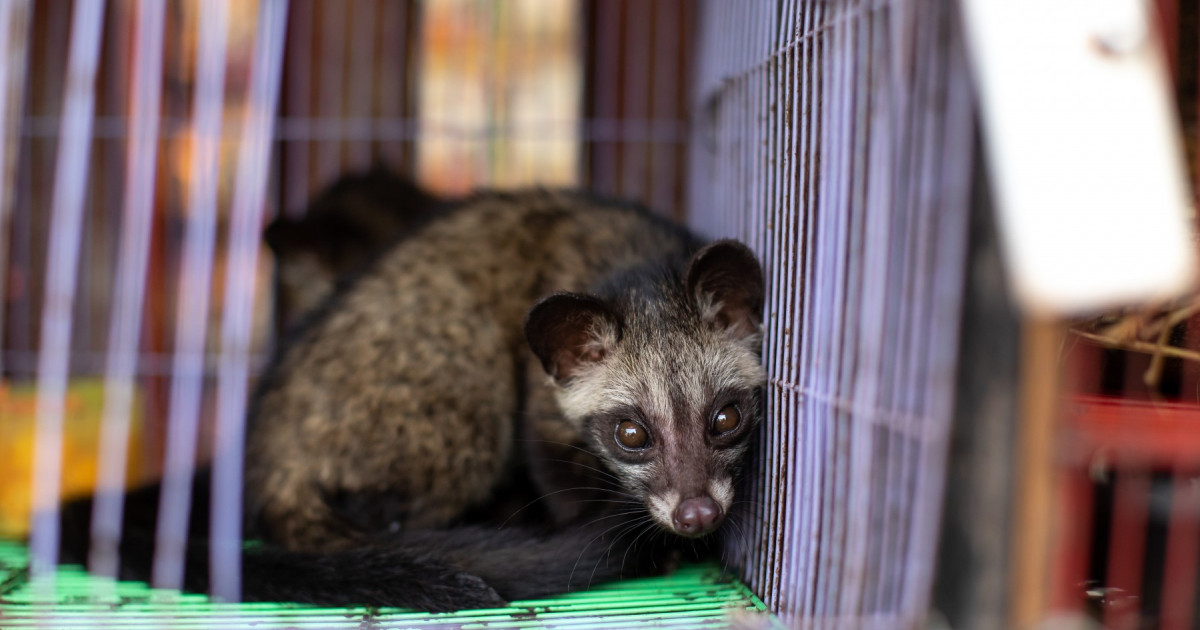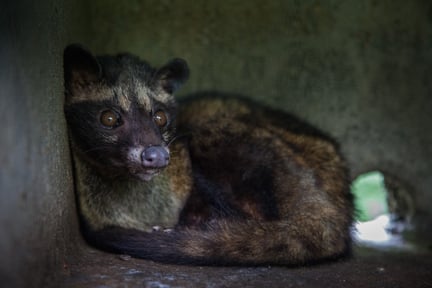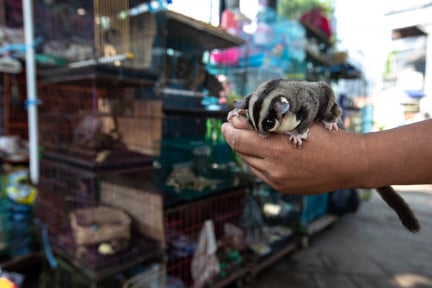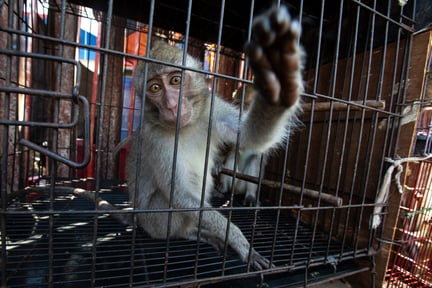- To stop the spread of zoonotic diseases and prevent future pandemics.
- To protect millions of animals from the cruelest forms of suffering.
- To prevent species extinction and protect biodiversity.
The wildlife trade and wildlife markets played a significant role in the COVID-19 and other outbreaks like SARS. The crowded, unsanitary and stressful conditions in which the animals are traded and kept in provides the ideal environment for the emergence and spread of infectious diseases which can then be transmitted to humans.
More than 5,500 wild animal species are currently in the trade. The diverse array of animals, many of which would never encounter each other in the wild or come in close proximity to humans.
The current pandemic and previous major epidemics around the world are fundamentally linked to our poor treatment and exploitation of wild animals and our encroachment on their habitats.
Millions of wild animals are captured, bred and traded every year across the globe for food, traditional medicine and pets. Animal suffering occurs and zoonotic diseases can be spread at every stage of the trade.
75% of new or emerging infectious diseases affecting human health originate in animals, principally in wildlife (e.g. SARS, Ebola, and now COVID-19).
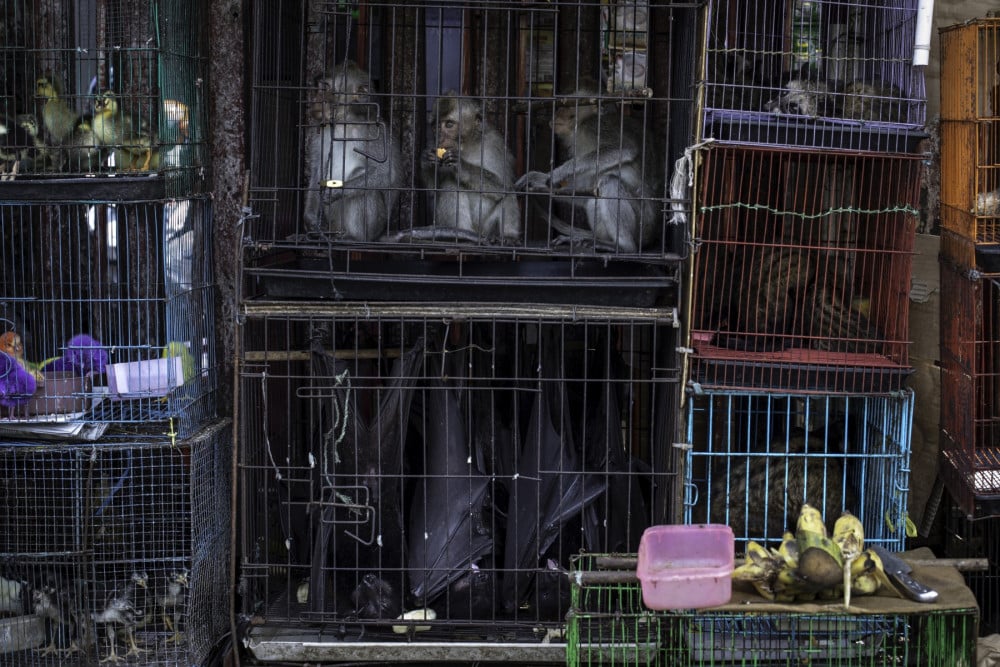
Photo credit: Aaron Gekoski for World Animal Protection
Preventing the next pandemic
Watch our virtual Parliamentary reception
In March 2021, World Animal Protection hosted a virtual parliamentary reception to demonstrate the strong scientific evidence and Canadian and MP support for curbing the commercial wildlife trade.
The event featured leading infectious disease experts and demonstrated the strong scientific evidence and support from the public and MPs across Canada’s four main national political parties for controlling the wildlife trade.
Watch our virtual Parliamentary reception
Global problems require global solutions
Every country has been impacted by COVID-19 and should do everything they can to prevent this from ever happening again. Shutting down wildlife markets and curbing the wildlife trade is the most effective way to prevent future pandemics and now is the time to act.
In 2020, a coalition of Canadian and international animal protection organizations, academics, conservationists and zoonotic disease experts called on the Canadian government to bring this issue to the G20 and take action nationally.
Read the full letter and what steps are needed to address this issue.
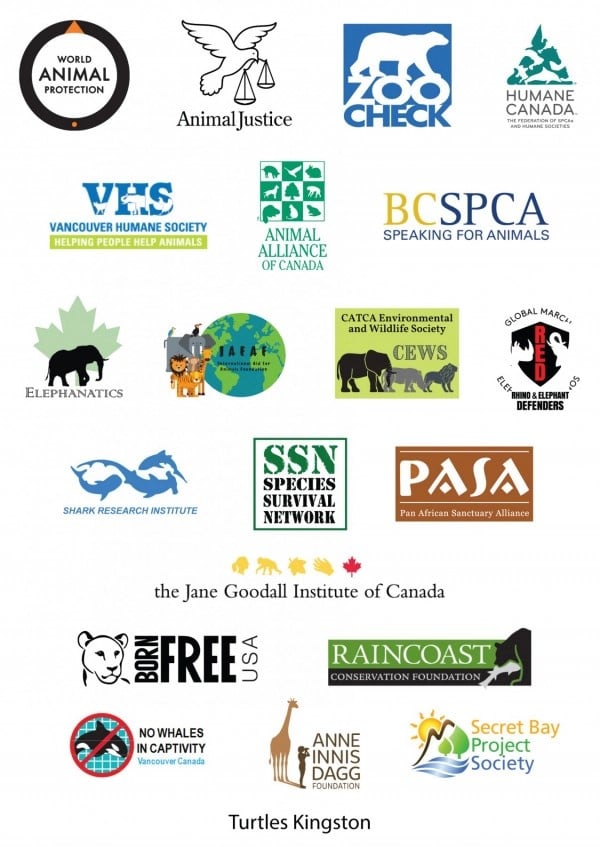
During the 2021 Federal election, the Liberals, Conservatives and NDP made platform commitments to address the wildlife trade, and the Liberal commitment was also reflected in the Minster of Environment and Climate Change’s mandate letter.
We are asking the Canadian government to not only bring this issue to international platforms but also to curb the import and domestic trade in wild animals and wild animal products that could contribute to the spread of zoonotic disease in Canada by:
- Establishing and adequately funding a comprehensive and transparent system for tracking and monitoring the import, export and sale of live wild animals and their parts and derivatives in Canada.
- Working with provinces and territories to mitigate inherent risks to public health, animal welfare and our natural environment by harmonizing and strengthening regulations to drastically reduce captive breeding, transport and the physical and online trade in wild animals.
- Strengthening enforcement of both the legal and illegal wildlife trade through improved coordination across agencies and federal/provincial/territorial jurisdictions and increased funding and resources.
Canadian attitudes on the global and domestic wildlife trade
A new poll from Northstar Research Partners found Canadians are concerned about the impact of the global wildlife trade. Results include that 89% believe the wildlife trade threatens human health and can cause pandemics.
Calling on the WHO to endorse a ban on wildlife markets to save human lives
As the world continues to fight COVID-19, over 200 organizations, including World Animal Protection, Humane Society International and Born Free have issued a letter urging the World Health Organization (WHO) to endorse a permanent ban on live wildlife markets and the use of wildlife in traditional medicine.
The letter, sent on World Health Day (April 7, 2020), highlights that with the suspected COVID-19 link to a live wildlife market in China, the WHO must take action. The WHO’s mission is to serve public health at all times and should therefore recommend governments worldwide to permanently ban live wildlife markets and the use of wildlife in traditional medicine.
The letter states: "While a robust global response is critical in detecting, treating and reducing transmission [of COVID-19], it is equally necessary to take vital measures to prevent similar emerging infectious diseases developing into pandemics with the associated threats to human life and social and economic well-being."
Read the global coalition letter.
Wildlife markets and COVID-19
Read more about the connection between wildlife markets and COVID-19 in the paper written by Ronald Orenstein, Ph.D., LL.B and published by Humane Society International. (2020).
About the author: Ronald Orenstein is a Canadian zoologist, lawyer, dedicated wildlife conservationist and the author of eleven books on science and nature. He has been a registered observer at CITES meetings for over thirty years.
Read Wildlife markets and COVID-19
